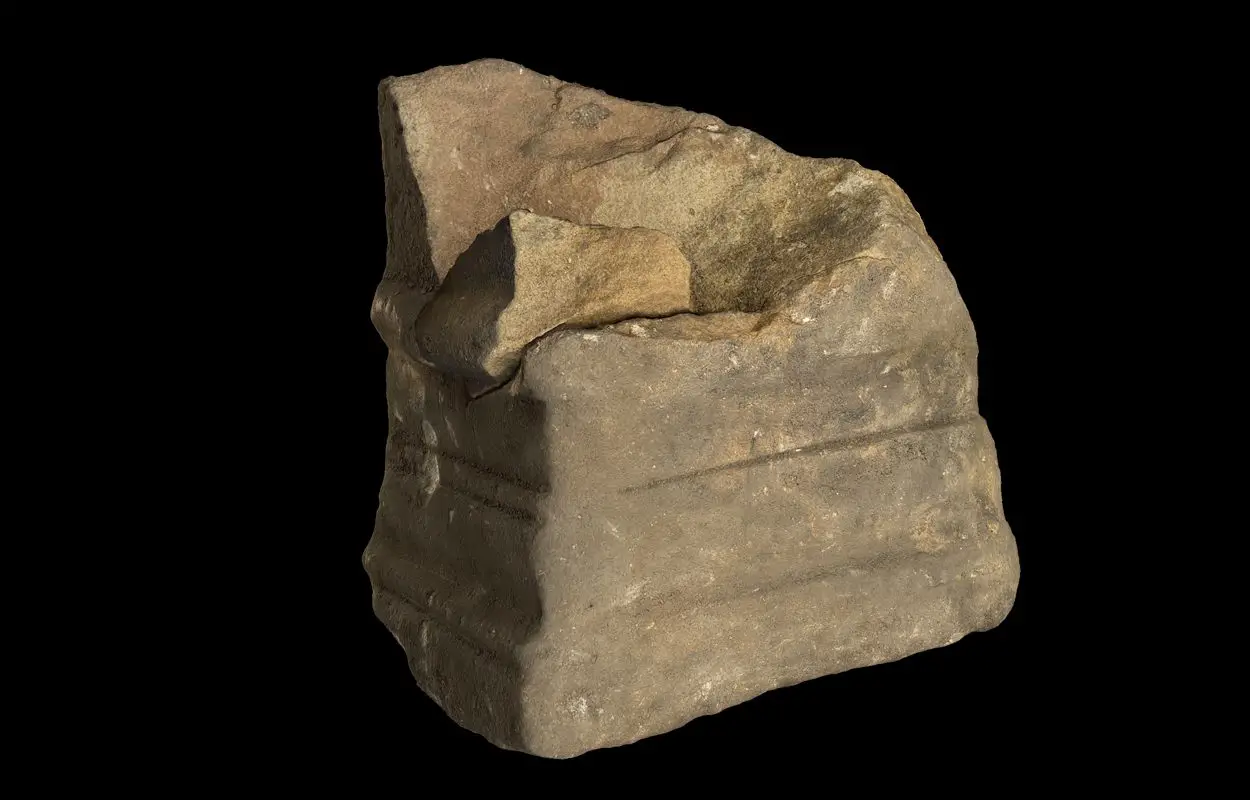Archaeologists from the University of Leicester Archaeological Services have uncovered a 1,800-year-old altar stone from the Roman period during excavations in the grounds of Leicester Cathedral.
Leicester was called Ratae Corieltauvorum or simply Ratae during the Roman period. After the Roman conquest of Britain, a town was sited at an important river crossing along the Fosse Way, a major Roman road which linked Lincoln to the north-east with Exeter to the south-west.
Roman occupation seems to have developed as a continuation of the existing Iron Age settlement, emerging as a major Roman centre with a typical grid system and numerous public buildings such as a forum and basilica, the Jewry Wall Public Baths, and at least one temple identified as a Mithraeum (dedicated to the Persian god Mithras).
The altar stone was found in a cellar in the grounds of Leicester Cathedral, believed to be a shrine or cult room. The cellar measures four by four metres and is located 3 metres below the current ground level, or 1 metre below the contemporary Roman surface level. The cellar was built in the 2nd century AD, but was deliberately dismantled and infilled, probably in the late 3rd or 4th century.
Excavations of the cellar revealed the base of an altar stone lying broken and face down amongst the rubble. The altar, which measures 25cm by 15cm, is carved from Dane Hills sandstone quarried locally and is decorated with mouldings on three sides.

Archaeologists from University of Leicester Archaeological Services suggest that the cellar was a private place of worship, either as a family shrine or cult room, where a small group of individuals shared in private worship.
Underground chambers like this have often been linked with fertility and mystery cults and the worship of gods such as Mithras, Cybele, Bacchus, Dionysius and the Egyptian goddess Isis.
In a press announcement, ULAS said: “The discovery of a Roman altar at Leicester Cathedral, the first to ever be found in Leicester, is an amazing find for the Leicester Cathedral Revealed project. For centuries there has been a tradition that a Roman temple once stood on the site of the present Cathedral.”
Header Image Credit : ULAS





